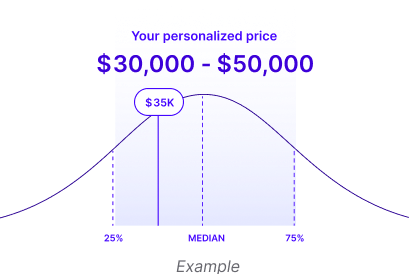OneSchema
$12,000–$50,000per year
Fast, fair, easy pricing. No sales call required.
OneSchema
|Visit oneschema.co
How much does OneSchema cost?
Median contract value
$40,550
Based on data from 9 purchases.per year
Median: $40,550
$12,000$50,000
LowHigh
See detailed pricing for your specific purchase
AI Quote Analysis
Upload your quote to check if you’re getting a fair price, under 2 minutes and completely free.

How does OneSchema price and package their products?
View pricing on OneSchema's website
Product:
Starter
Contact for pricingPayment Terms: Annual billingPopular Features: 1,200 annual file upload limit, embeddable CSV importer
Negotiating with OneSchema
Negotiation Tips
Utilizing the competitive landscape can significantly enhance negotiation leverage. By presenting quotes and options from competing vendors, you can force OneSchema to reconsider their pricing and terms. Be clear about how these alternatives could impact your decision and illustrate that you are serious about evaluating their competitors based on price and functionality.
When confronted with a contract uplift, emphasize your budget constraints and the expectation for stable or reduced pricing proportional to usage. This plays well with the trend of reducing overall costs as your adoption of the platform grows, and you may be able to negotiate the removal of uplift altogether based on underutilization.
If your organization anticipates growth in usage, leverage this by requesting lower rates that reflect economies of scale as you scale your user base. Companies that commit to additional usage typically see better per-user pricing, driving overall costs down.
Emphasize the importance of a non-auto-renewable contract as a requirement from your finance/legal teams. This will prevent automatic renewals that lock you into terms that may no longer serve your needs and allows better negotiation leverage at future renewal points.
Discuss the possibility of converting any existing discounts into a permanent offer in the next agreement cycle. If you've received a discount previously, arguing that it should not be labeled as a one-time offer could lead to ongoing concessions.
Considerations when buying OneSchema
OwnershipOneSchema AI, Inc.
Fiscal year endDecember 31
Best months to buyDecember, January, March
Payment TermsAnnual payment in advance, Monthly options available for some tiers, Negotiable payment terms for larger contracts
Upgrades/downgradesYes, OneSchema offers both upgrades and downgrades for its services, making it easy for users to adjust their resources as their needs change.
Redline thresholdRedline threshold estimate is $50k.
Vendr community insights for OneSchema
What real buyers recommend in the negotiation process
Company with 201-1000 employeesA while ago
We were able to secure a 15% discount in exchange for a case study. Company with 201-1000 employeesA while ago
OneSchema had a recent model change and we were able to leverage the previously presented pricing, a newer sales rep misunderstandings, competition, and willingness to walk away to leverage more than 50% savings on a new purchaseAdditional Info
What is OneSchema?
OneSchema is a cloud-based platform that enables businesses to manage their data and build applications faster.OneSchema's 3 Product
OneSchema: Enterprise
Custom packages to support recurring workflows
OneSchema: Pro
For larger teams with higher file volume
OneSchema: Starter
For small teams getting started
News that may impact OneSchema pricing or negotiations
FinSMEs
OneSchema Raises $6.3M in FundingNovember 20, 2022PR Newswire
OneSchema Raises $6.3M from General Catalyst, Sequoia, and Y Combinator to Make Ingesting CSV Data Magical For DevelopersNovember 18, 2022Business Insider
How OneSchema Raised $6.3 Million in Seed Funding Without a Pitch DeckNovember 16, 2022